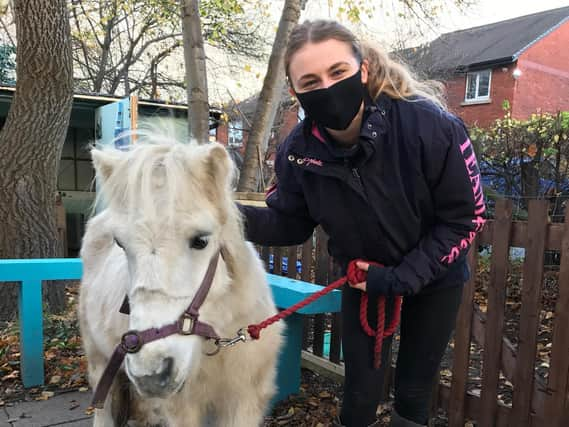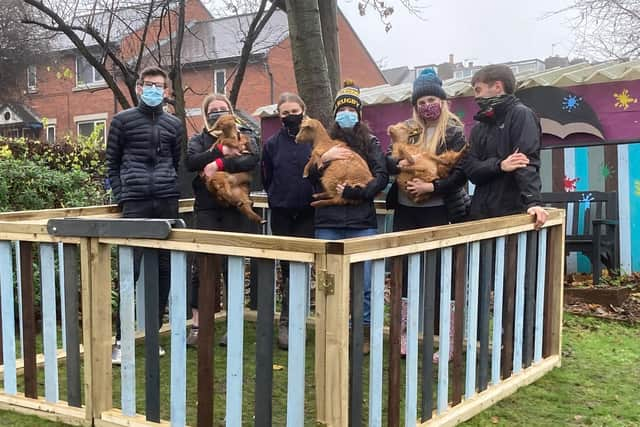Medical students at University of Sheffield spend time on Heeley City farm helping dementia patients re-connect with memories


Lucy Dean, who is a third year medical student at the University of Sheffield, described how animal therapy has helped connect elderly patients connect with their past in the project that is putting community at the heart of health practice.
Ms Dean, 21, was one of several students who spent time at Heeley City farm as part of the six-week social accountability project supporting some of the most vulnerable people in South Yorkshire including young people and those with disabilities.
Advertisement
Hide AdAdvertisement
Hide Ad“I didn't really know what to expect – I thought it'd be useful and I’d learn about animal therapy, but I didn't know that I would take away as much as I did from the placement,” she said.


“I definitely think that in the future I'm going to remember the process of social prescribing, the non-medical treatment of health education.”
Built on derelict land in 1981, Heeley City Farm has volunteers who are used to working with young people, adults with learning disabilities and the local groups to teach the community about the environment and regeneration.
Through their ‘Farming Comes to You’ initiative, people with dementia can spend time with the farm inhabitants as part of the Animal Assisted Therapy.
Advertisement
Hide AdAdvertisement
Hide Ad“There was one lady living with dementia who was quite vulnerable. After doing a full risk assessment, she was able to come one afternoon and sit outside and be around animals for her mental health,” recalled Lucy.
“I remember her being a bit withdrawn and quiet, but the minute she sat down and a guinea pig was placed on her lap and the goats were let out to roam around her, she just came to life.
“She started chatting to me freely about her life and singing to me all these songs that she knew from her childhood, and it really just showed how calming the effect of animals can be on people. No drug could have helped her feel that happy with herself.”
Along with two other students, Ms Dean created dementia-friendly cards that were sent out with Christmas hamper boxes to provide locals with a glimpse into the farm’s animal family amid coronavirus lockdown restrictions.
Advertisement
Hide AdAdvertisement
Hide Ad“As a future clinician, I have to understand that people like to communicate differently and I have to be open to that and help them as much as possible with it.
“So, we decided to make these cards to be visually appropriate for people that may have reduced eyesight.People with dementia need something tactile that they can hold because using other senses can help them communicate without relying on just their speech and
vision.
“Some of them haven’t been able to see the animals for months even if they used to come in every week, so seeing a picture of their favourite goat, chicken, snake or chinchilla can help them cope. I was really proud of those because we found an effective way around the impairment to communicate with others.”
Lee Pearse, Senior Manager at Heeley City Farm and Dementia Manager, said: “The third year medical students who have been part of the Social Accountability placements on the farm for the past six years have researched, developed and delivered varying projects that have had a huge impact on Heeley City Farm, its staff, young people and volunteers.
Advertisement
Hide AdAdvertisement
Hide Ad“It is vitally important that students are made aware of what they can offer to society through their own lived experiences, studies and knowledge when given the opportunity to experience the frontline in our communities.
“Students should have the widest opportunity to engage in these community placements to enable them to see what the everyday community is and how it operates - this placement does that.”
Support The Yorkshire Post and become a subscriber today. Your subscription will help us to continue to bring quality news to the people of Yorkshire. In return, you'll see fewer ads on site, get free access to our app and receive exclusive members-only offers. Click here to subscribe.